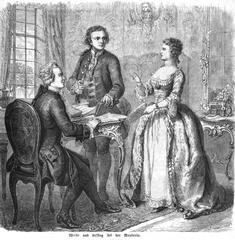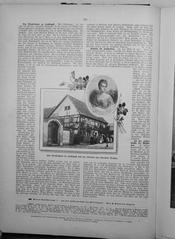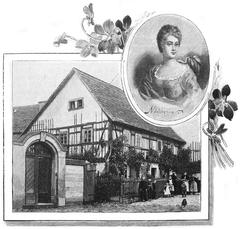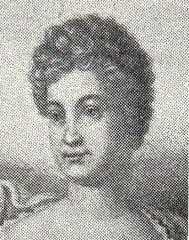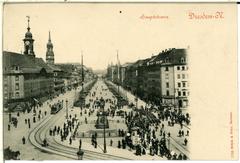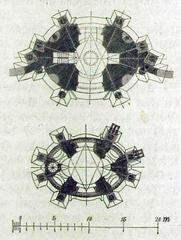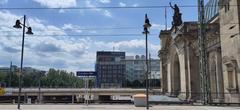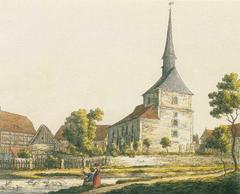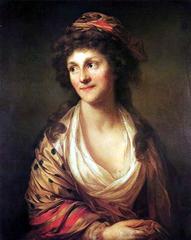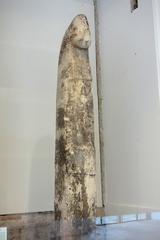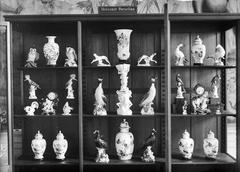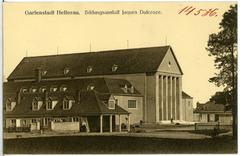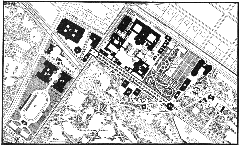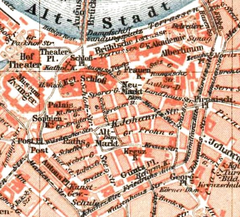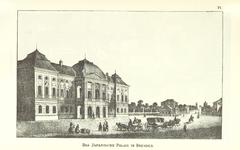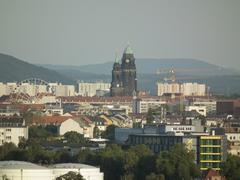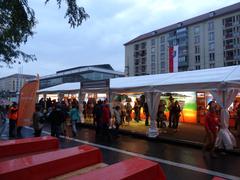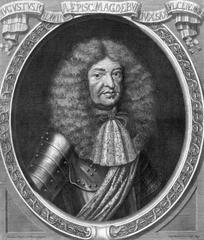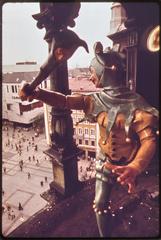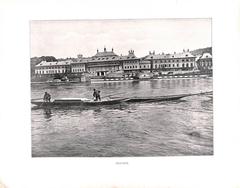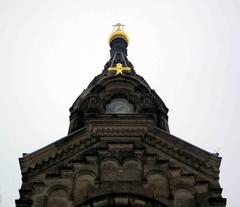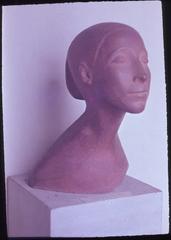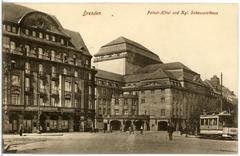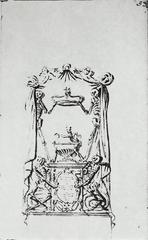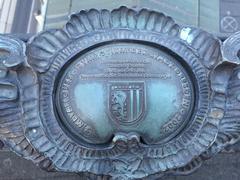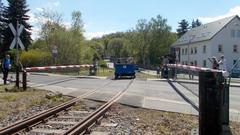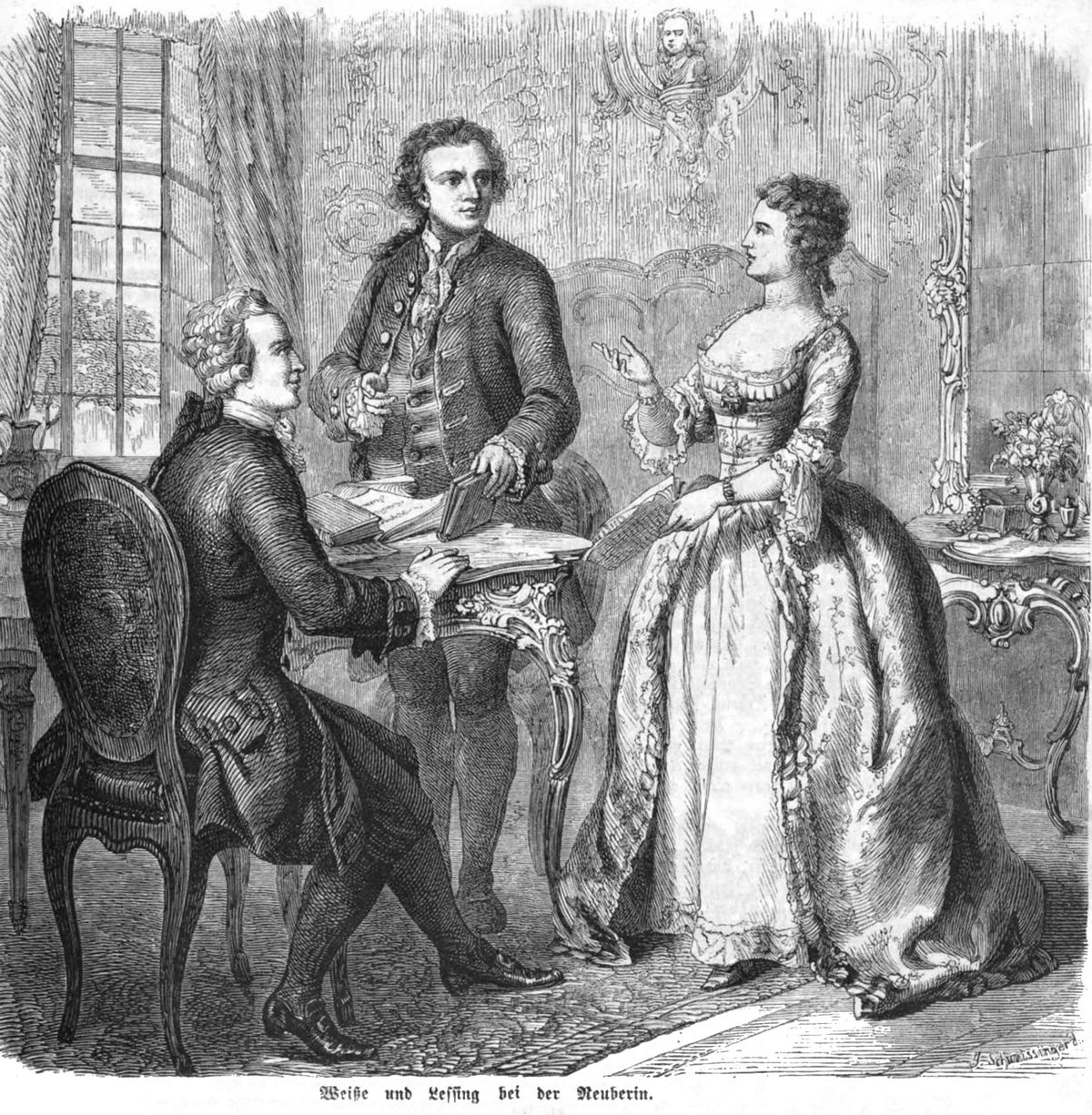
Friederike Caroline Neuber in Dresden, Germany: Visiting Hours, Tickets, and Historical Sites Guide
Date: 14/06/2025
Introduction
Friederike Caroline Neuber (1697–1760), revered as the “Mutter des deutschen Theaters” (Mother of German Theatre), was a transformative figure in 18th-century stagecraft. Her legacy is deeply interwoven with Dresden, Leipzig, and her birthplace Reichenbach im Vogtland. This detailed guide provides everything you need to explore the key Neuber-related sites in Dresden and Reichenbach, including practical visitor information, historical background, ticketing, accessibility, and tips for enriching your cultural journey in Saxony.
Table of Contents
- Introduction
- Historical Background
- Visiting Neuber Sites: Hours, Tickets, and Transport
- Nearby Attractions in Dresden
- Frequently Asked Questions (FAQ)
- Practical Visitor Tips
- Conclusion and Call to Action
- References
Historical Background
Early Life and Formative Years
Born Friederike Caroline Weißenborn in 1697 in Reichenbach im Vogtland, Saxony, Neuber grew up in an environment shaped by both privilege and adversity. Her strict father, a court inspector and lawyer, imposed a harsh upbringing, while her mother fostered a strong humanistic education—unusual for girls at the time. Early exposure to literature and the arts, including French and possibly Molière’s works, sowed the seeds for Neuber’s future innovations (Encyclopedia.com; Leipzig.de).
A turbulent adolescence, including a failed elopement and over a year’s imprisonment, led to her eventual marriage to Johann Neuber in 1718, marking the start of her theatrical journey (Zeno.org).
Entry into Theatre
Neuber and her husband joined various traveling troupes, honing their craft across German cities such as Dresden, Leipzig, and Hamburg (Kiddle). By 1727, the Neubers had founded their own company, earning the prestigious right to perform during the Leipzig trade fairs—an important privilege in the theatre world (Leipzig.de).
Although Johann Neuber was the official leader, Friederike Caroline managed finances, repertoire, and performance style, defying contemporary gender norms.
Theatre Reform and Legacy
Neuber’s partnership with literary reformer Johann Christoph Gottsched was pivotal in transforming German theatre. Together, they championed scripted, rehearsed performances over improvisational farce and publicly banished the comic figure Hanswurst from the stage in 1737—a symbolic break from lowbrow traditions (Geschichte Sachsen). Neuber’s innovations included:
- Prioritizing rehearsed, literary drama over improvisation
- Introducing tragic and moral themes
- Promoting German-language scripts and nurturing new playwrights, such as Gotthold Ephraim Lessing
Despite her achievements, financial hardships and changing public tastes led to the dissolution of her company in 1750. Neuber died in poverty in 1760 in Laubegast, Dresden, and was buried in Leuben Cemetery (Deutsche Biographie).
Visiting Neuber Sites: Hours, Tickets, and Transport
Neuberin Museum (Reichenbach)
- Location: Reichenbach im Vogtland, Saxony
- Opening Hours: Tuesday–Sunday, 10:00–17:00; closed Mondays
- Tickets: Adults €5, concessions €3, children under 12 free
- Highlights: Exhibits on Neuber’s life, 18th-century theatre technology, and the evolution of German drama
- Accessibility: Wheelchair accessible; staff assistance available
- Ticketing: Purchase in advance via the city’s tourism website or at the door (Reichenbach Vogtland)
Dresden Memorials: Leuben Cemetery & Laubegast Denkmal
-
Leuben Cemetery (Friedhof Leuben):
- Significance: Neuber’s modest grave, a site of reflection for theatre enthusiasts
- Hours: Open daily, dawn to dusk
- Admission: Free
- Accessibility: Some uneven ground; accessible by tram and bus
-
Neuberin Denkmal (Laubegast):
- Location: Fährstraße/Laubegaster Ufer, near the Elbe River
- Hours: Outdoors, accessible 24/7 year-round
- Admission: Free
- Accessibility: Wheelchair-friendly riverside paths; popular for walks and cycling
- Events: The annual Inselfest Laubegast in August celebrates Neuber’s legacy with performances, tours, and exhibitions (Komoot; Inselfest Laubegast)
Getting There & Best Times to Visit
-
From Dresden City Center:
- To Laubegast: Tram lines 4 and 6, or bus; direct connections from Hauptbahnhof
- To Leuben Cemetery: Tram lines 7 and 12
- To Reichenbach: Regional trains from Dresden or Leipzig; local buses connect to the museum
-
Best Times: Spring and early autumn for pleasant weather; weekdays for quieter museum visits; August for festival events
Nearby Attractions in Dresden
- Semperoper Dresden: Saxony’s iconic opera house, offering guided tours and world-class performances (Dresden.de)
- Dresden City Museum: Learn more about the city’s theatrical and cultural history
- Old Town (Altstadt): Explore baroque architecture, cafes, and vibrant cultural sites
Frequently Asked Questions (FAQ)
Q: What are the opening hours of the Neuberin Museum in Reichenbach?
A: Tuesday–Sunday, 10:00–17:00; closed Mondays.
Q: Are tickets required for the Neuberin Denkmal or Leuben Cemetery?
A: Both sites are outdoors and free to visit.
Q: Can I arrange a guided tour?
A: Guided tours are available at the museum (book in advance) and during special events at Laubegast.
Q: Is the site accessible for visitors with limited mobility?
A: Yes, both the museum and the Laubegast memorial are accessible.
Q: How do I reach Laubegast from central Dresden?
A: Take tram lines 4 or 6; the journey is direct and convenient.
Practical Visitor Tips
- Public Transport: Trams and buses are reliable; cycling is popular along the Elbe
- Dining: Sample Saxon cuisine in riverside cafes or Old Town restaurants
- Accommodation: Options range from luxury hotels to guesthouses in Altstadt, Neustadt, and Laubegast
- Photography: Allowed at outdoor sites; check museum policy for exhibits
- Events: Visit during Inselfest Laubegast in August for immersive cultural programming
Conclusion and Call to Action
Tracing Friederike Caroline Neuber’s legacy through Dresden and Reichenbach offers a unique portal into German theatrical history and women’s cultural contributions. Whether you are a theatre lover, historian, or casual traveler, these sites provide both inspiration and context for understanding the evolution of drama in Germany.
Plan your trip today by checking the most up-to-date visiting hours and ticket options. Enhance your experience with a guided tour or the Audiala app for audio guidance. Share your journey using #NeuberMemorialDresden, and become part of the vibrant community preserving Neuber’s heritage.
References
- Encyclopedia.com
- Geschichte Sachsen
- Wikipedia
- Leipzig.de
- Komoot
- Inselfest Laubegast
- Dresden.de
- Reichenbach Vogtland
- Dresden City Museum
